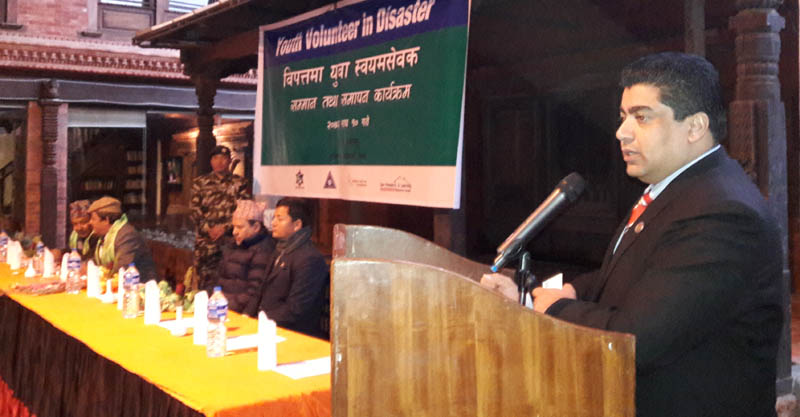‘Securing long-term peace in country still a challenge’
Dharan (Sunsari), June 25
Witnesses to Nepal’s unique peace process have expressed the need to address two prominent issues — amicable conclusion of the remaining tasks of the peace process and elimination of structural inequalities — for lasting peace and prosperity in the country.
Participants of a regional conference jointly organised by the Ministry of Peace and Reconstruction, European Union and US AID on Thursday in Dharan said Nepal achieved a great success in taking ahead the home-grown peace process initiated in November 2006. They, however, cautioned that many challenges still remained as another kind of conflict might emerge if the remaining tasks were not completed soon.
Former speaker Daman Nath Dhungana, who facilitated the talks between the government and then Maoist rebels, stressed the need for a comprehensive programme for at least the next 10 years to address the concerns of various agitating groups and end inequalities in society. “If these issues are not addressed honestly, they may pose a threat to the country’s lasting peace,” said Dhungana.
Dhungana cautioned all leaders against taking advantage of Truth and Reconciliation Commission and the Commission of Investigation on Enforced Disappeared Persons to settle score with conflict-era rivals. “This is why CPN-Maoist Centre Chairman Pushpa Kamal Dahal seems to have given priority to the remaining tasks of the peace process than to become the prime minister,” said Dhungana.
Former lieutenant general and coordinator of the secretariat of Special Committee on Supervision, Integration and Rehabilitation of Maoist combatants, Balananda Sharma, said structural violence generated by discrimination in families and societies were a serious threat to peace and prosperity. Many former combatants shared in course of integration process that they participated in the armed struggle to end inequalities in society, said Sharma.
“As political leaders have the tendency to look at social challenges from the viewpoint of benefit and loss, they have not been able to rise above their individual interests,” he said. “This has posed a challenge to the country’s peace and prosperity,” he said.
Political analyst Professor Lok Raj Baral said the country had to face a long transitional phase due to lack of farsightedness of political leaders. “Lasting peace and prosperity will depend on how the issues of TRC and CIEDP are tackled and whether leaders become able to settle the issues politically,” Baral said.
Charge d’ Affaires of European Delegation to Nepal Genoveva Hernandez Uriz said implementation of the new constitution taking into account the dissenting voices will hopefully bring about more democracy and accountability at the local level. “Activating constitutional mechanisms for political participation of women and marginalised groups will make political and administrative structures better reflect the composition of the whole country,” she said.
Members of local peace committees of 16 eastern districts expressed their worries about whether the TRC and CIEDP would be able to provide justice to the conflict victims in the fluid political condition.






